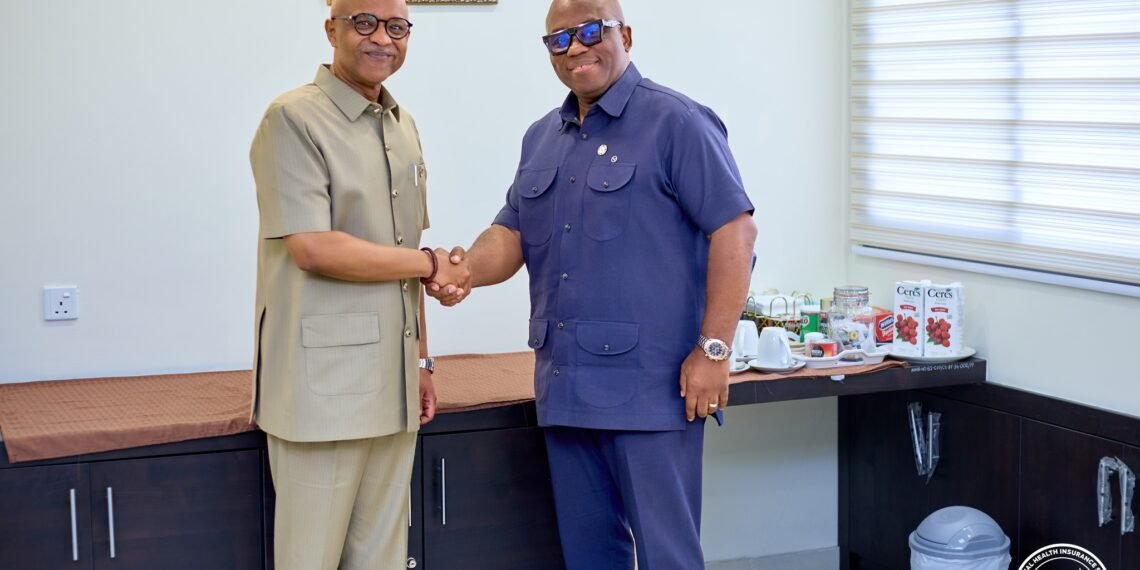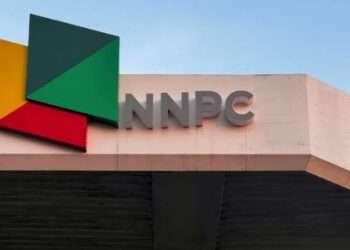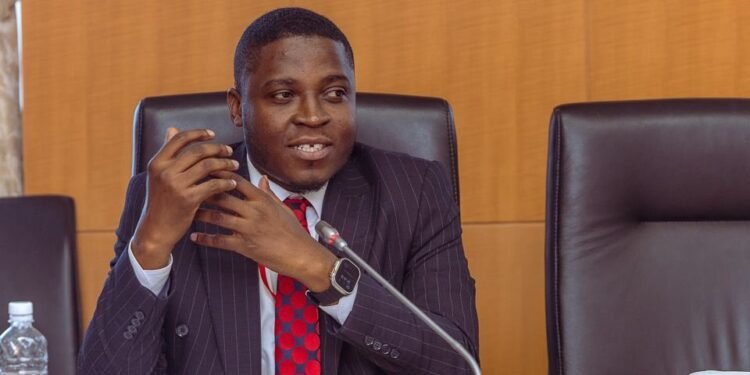The United Nations Children’s Fund (UNICEF) has reaffirmed its unwavering commitment to supporting the National Health Insurance Authority (NHIA) in Ghana, as part of its global mandate to enhance the well-being of children and families across the world.
In a clear demonstration of this pledge, UNICEF’s Representative to Ghana, Mr. Osama Makkawi Khogali, led a delegation to the NHIA offices to meet with the newly appointed Chief Executive, Dr. Victor Asare Bampoe.
The visit, described by both parties as highly significant, was aimed at strengthening the partnership between UNICEF and the NHIA, with a shared goal of achieving universal healthcare coverage for all Ghanaians by 2030.
Mr. Khogali used the opportunity not only to congratulate Dr. Bampoe on his appointment but also to reemphasize UNICEF’s strategic alignment with Ghana’s broader healthcare reform agenda.
Mr. Khogali noted that UNICEF remains deeply committed to helping restore and sustain adequate resources for the NHIA, acknowledging the critical role the Authority plays in providing equitable healthcare services, especially to underserved and vulnerable communities.
“UNICEF recognises the importance of restoring adequate and sustainable resources to the NHIA and stands firmly aligned with the government’s decision to uncap the National Health Insurance Levy (NHIL).”
Mr. Osama Makkawi Khogali, UNICEF’s Representative to Ghana
The uncapping of the NHIL — a major policy decision by the government — has been widely lauded as a step towards enhancing the financial sustainability of the National Health Insurance Scheme (NHIS).
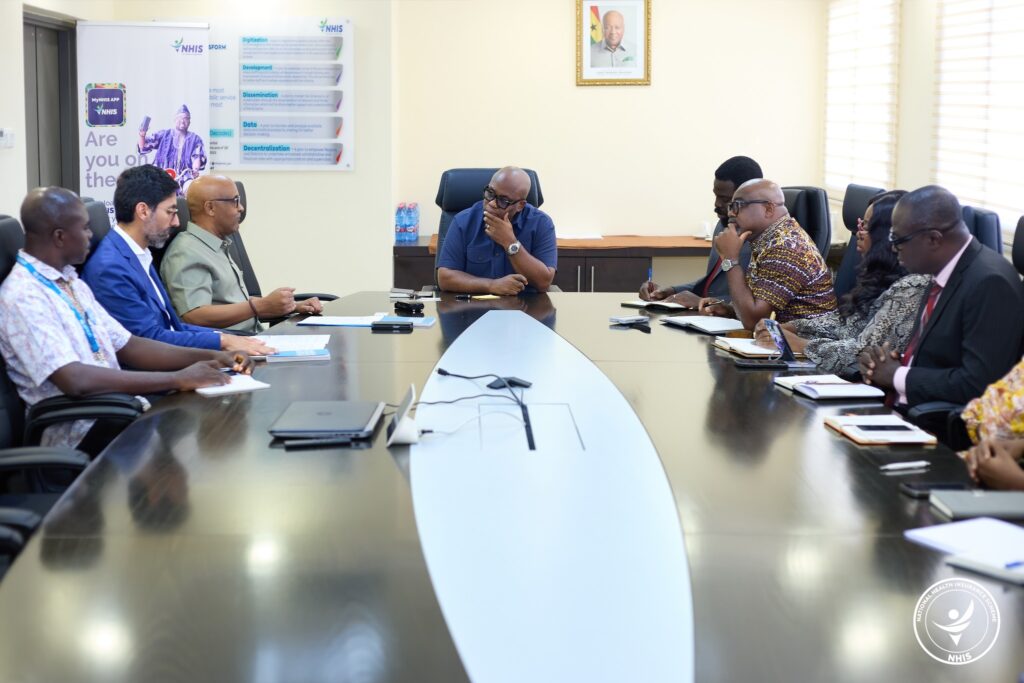
Mr. Khogali indicated that while this policy measure was vital, UNICEF would continue to complement it by providing financial and technical support to the NHIA.
This, he explained, is to ensure that the Authority is well-equipped to expand access to essential healthcare services, particularly for vulnerable populations, including children, women, and persons living in deprived communities.
Highlighting specific areas of collaboration, Mr. Khogali referenced the ongoing initiative between the NHIA and the National Identification Authority (NIA) to register children aged 6 to 14 on the national identity system, thereby facilitating their seamless enrollment into the NHIS.
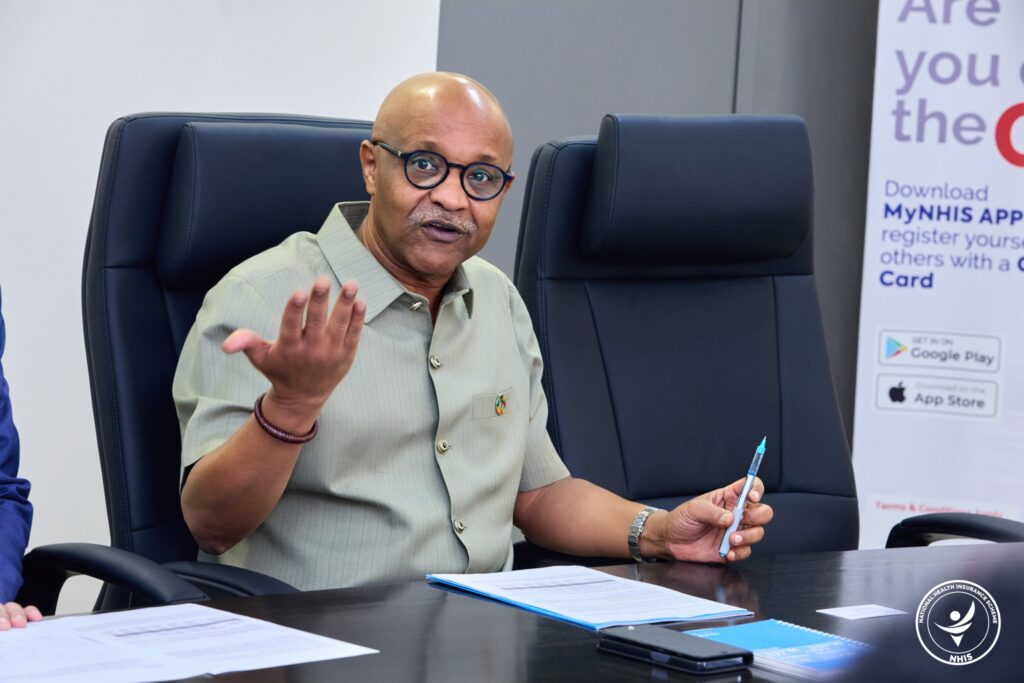
Although this exercise faced several logistical and operational challenges, UNICEF has played an instrumental role in its implementation. Mr. Khogali pledged UNICEF’s continued support for this important initiative.
“UNICEF would be willing to continue to support the NHIA during the implementation of the initiative. Then, together, we can explore innovative ways to scale it across the country in a sustainable way”.
Mr. Osama Makkawi Khogali, UNICEF’s Representative to Ghana
He emphasized that integrating health insurance registration into the national identity framework would not only improve enrollment numbers but also ensure that no child is left behind in accessing affordable healthcare.
NHIA’s Response
The NHIA Chief Executive, Dr. Victor Asare Bampoe, expressed profound appreciation to UNICEF for its longstanding support over the years.
He noted that the Authority’s partnership with UNICEF has been critical in driving several health insurance reforms and initiatives that target the most vulnerable segments of the population.
Dr. Bampoe further reiterated his commitment to strengthening these collaborative efforts, assuring UNICEF of his administration’s openness to innovation, accountability, and inclusive development.
“Your continued partnership comes at a crucial time when we are rethinking strategies to achieve universal health coverage. We are determined to work closely with all our partners to build a more resilient, inclusive, and sustainable healthcare system”.
NHIA Chief Executive, Dr. Victor Asare Bampoe
He also hinted at the NHIA’s plans to broaden its stakeholder engagement, invest in digital health technologies, and improve transparency and efficiency within the health insurance scheme.
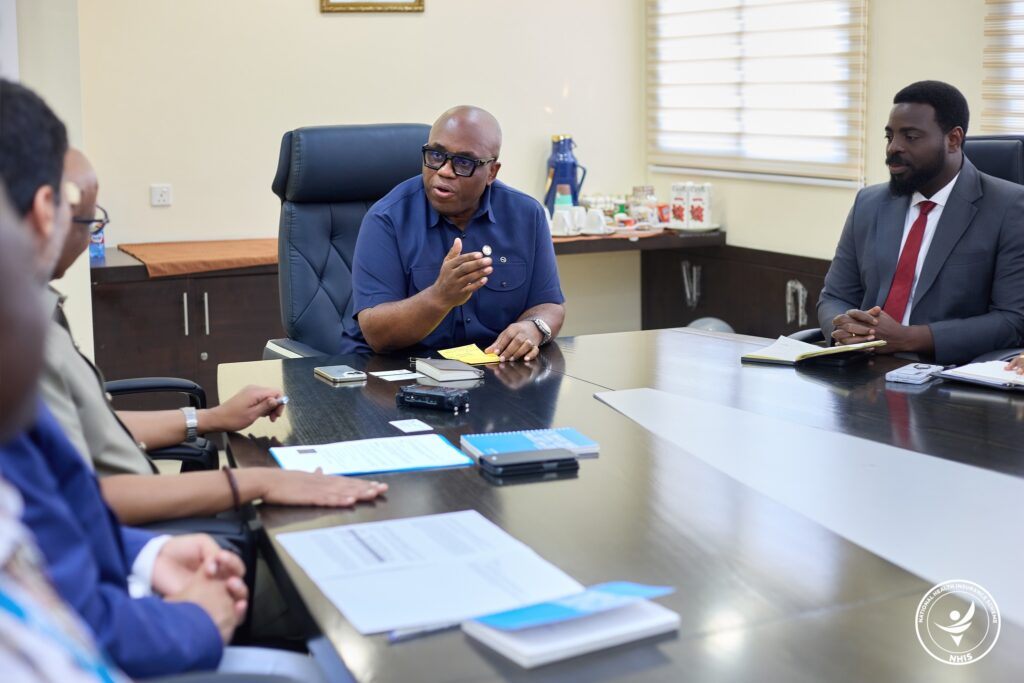
Dr. Bampoe stressed that the Authority’s ultimate aim is to guarantee that all Ghanaians, irrespective of their economic status or geographic location, have unhindered access to quality healthcare services.
With healthcare financing challenges still a major concern in Ghana, the reinforcement of external partnerships, especially with global development agencies like UNICEF, is seen as vital in shoring up the NHIS and expanding healthcare access to marginalized groups.
The collaboration between UNICEF and the NHIA is expected to catalyze innovative approaches, resource mobilization, and policy interventions that will transform Ghana’s healthcare delivery landscape.
READ ALSO: China, Vietnam Sign Dozens Of Agreements

